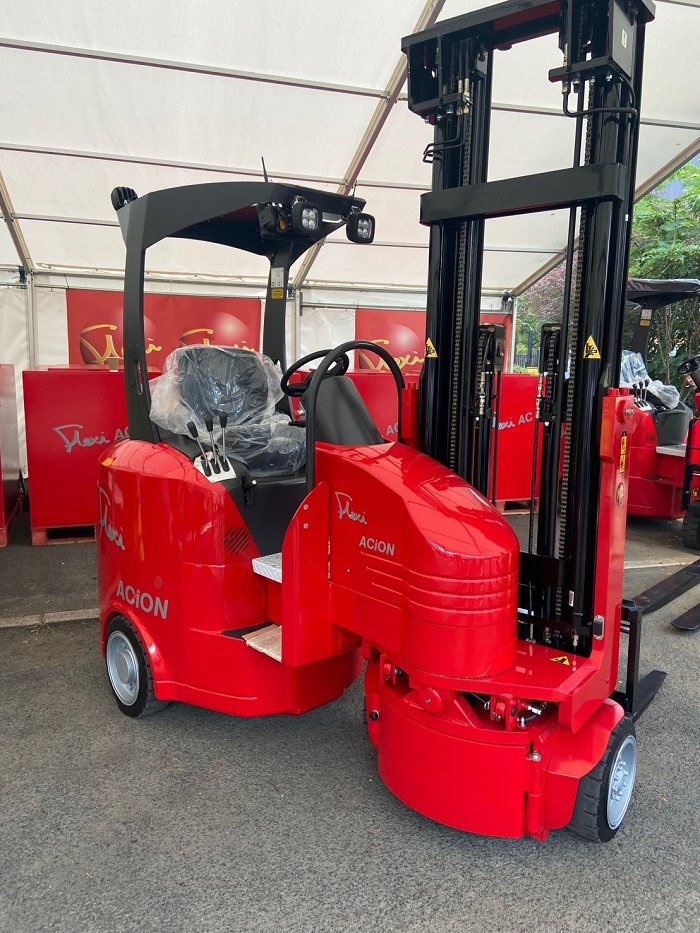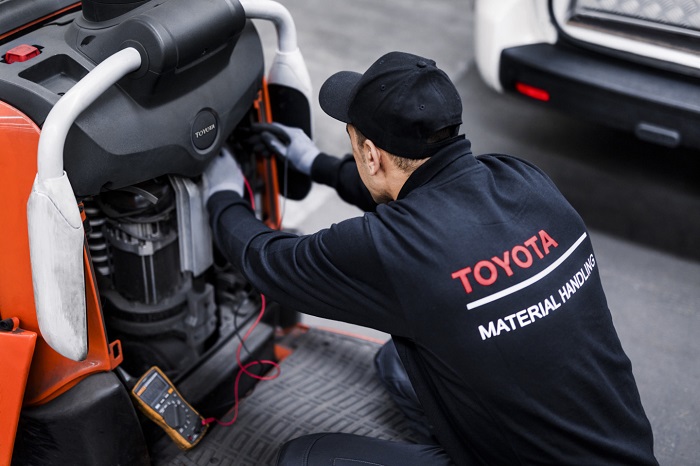-
Women Leading the Way in the UK Material Handling Industry - 2 days ago
-
DATA ANALYSIS – THE FOUNDATION OF EVERY PEAK SEASON - December 5, 2025
-
Creative education specialists Creative Hut give 3PL full marks for onboarding excellence - December 5, 2025
-
Unlimited Industries raises $12M to build the AI construction company that will power America’s future - December 4, 2025
-
Etaily lands strategic investment from Japan’s SMBC – bringing total funding to $24M for Social Commerce enablement platform - December 4, 2025
-
Prism eLogistics and Brand Angels Partnership Gives Brands the Full Package - December 3, 2025
-
New data shows Tesla in danger of losing its way as European consideration to buy Chinese cars jumps 16% in 12 months - December 3, 2025
-
QUECLINK DEVELOPS SATELLITE-ENABLED VEHICLE TRACKING FOR UNINTERRUPTED TRANSPORT MANAGEMENT - December 3, 2025
-
Ocado Ads partners with Epsilon for people-based precision - December 3, 2025
-
Combilift Unveils the 2025 Christmas video “Twelve Days of Christmas” – with a Twist! - December 1, 2025
Ignoring corporate sustainability responsibilities is not an option for logistics companies
Any logistics services provider or online fulfilment company that is perceived to be merely paying lip service to ‘green’ issues or is inactive when it comes to corporate sustainability strategy, not only risks seriously undermining its own brand and reputation – but also those of its clients.
That is the warning from Paul Mulcahy, Toyota Material Handling UK’s Quality, Health and Safety and Environment (QHSE) manager.
“There was a time when it was dismissed by sections of the business community as ‘just another fad,’ but corporate sustainability is now seen as deeply intrinsic to the success of any modern company,” says Paul Mulcahy.
He continues: “Sustainable practices have emerged as a strategic imperative and many companies – particularly retailers and online traders – are using sustainability to increase customer loyalty.
“Consumers increasingly show a preference for brands and products with authentic sustainability stories. As a result, today’s multi-channel retailers need to be able to demonstrate a genuine commitment to sustainable goals and they expect their logistics services providers or online fulfillment partners to be in a position to do the same.
“Of course, this is having a knock-on effect on materials handling equipment (MHE) companies too, because logistics and fulfillment operations obviously prefer to work with suppliers of forklift trucks and other types of MHE that are as serious as they are about sustainability – and not just treating the issue as another marketing veneer.
“For example it would be difficult for Toyota to provide forklift fleets to the UK’s biggest supermarket retailers or an organisation such as Amazon, if we didn’t have robust sustainability strategies in place.
“Companies only want to deal with businesses that share their values and this attitude is passing down through the supply chain. Ultimately, everyone – from the biggest retailer or manufacturer to their smallest supplier – will have to focus on its responsibility to operate sustainably.”
Contrary to popular belief, there is more to a corporate sustainability strategy than simply being ‘green’, as Paul Mulcahy explains.
“Ask a room full of people from the business community what ‘corporate sustainability’ means to them and the chances are most will immediately mention environmental issues. But environmentalism isn’t the whole story.
“When adopting a corporate sustainability strategy, businesses also have to consider their social, economic and cultural impact. In other words, a sustainable company will engage in business practices that are good for people as well as the environment.”
Sustainability has been high on Toyota’s agenda for many years and every 12 months, Toyota Material Handling UK undergoes an assessment by EcoVadis, the leading sustainability rating company. The assessment focuses on the company’s commitment not only to the environment, but also to labour issues and human rights, sustainable procurement and ethics.
In November 2020 Toyota was granted an EcoVadis Platinum award. The highest possible score, the award ranks the company within the top one per cent of the 61,000 plus organisations around the world that undergo the EcoVadis programme.
“Receiving an EcoVadis Platinum award enables us to build trust with our customers, suppliers and other stakeholders, and encourages all of us within Toyota Material Handling UK to continue integrating sustainability into the way that we work,” says Paul Mulcahy.
As part of its ongoing commitment to seek out new sustainable initiatives, Toyota Material Handling UK has recently established a sustainability group comprising team members with widely varying roles from across the company. The group’s job is to identify ways that Toyota can contribute more to society and its local communities.
“Adopting even seemingly insignificant sustainable practices can have a major impact in the long term, so nothing will be overlooked. After all, it is said that If every office worker in the UK used one less staple a day, 120 tonnes of steel would be saved in a single year!” adds Paul Mulcahy.
































